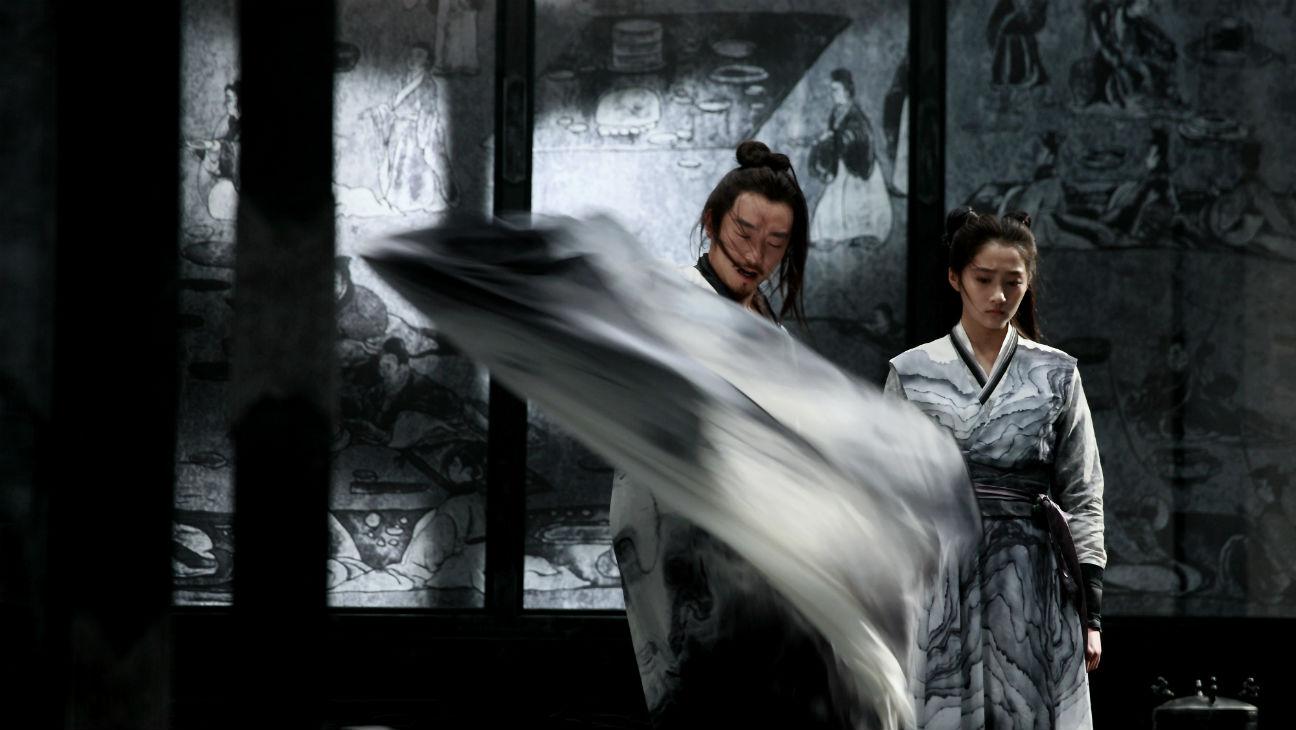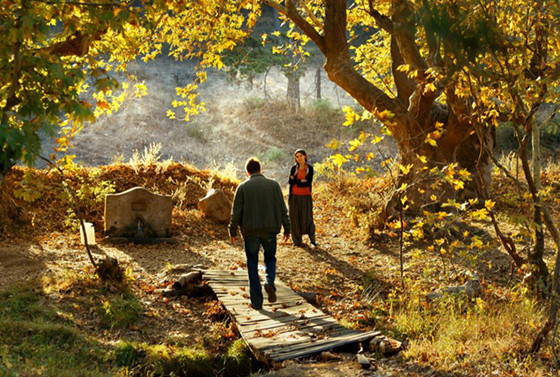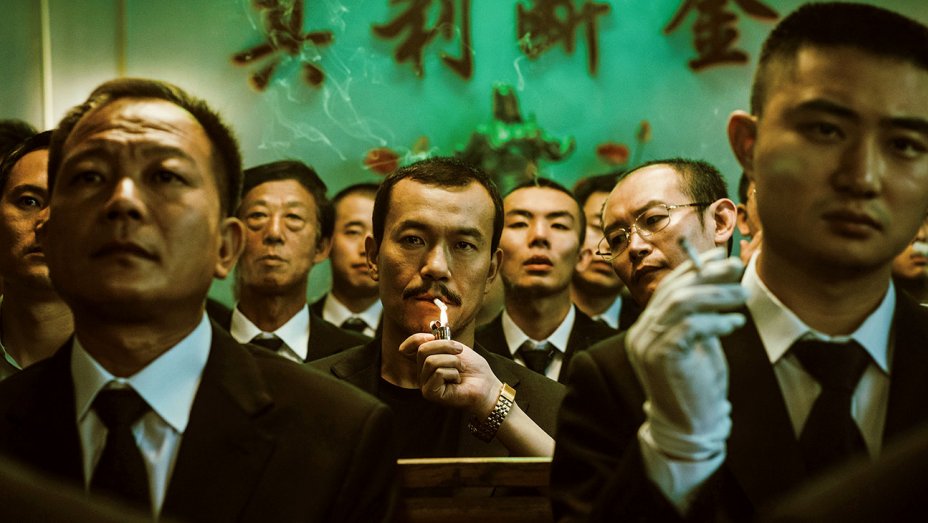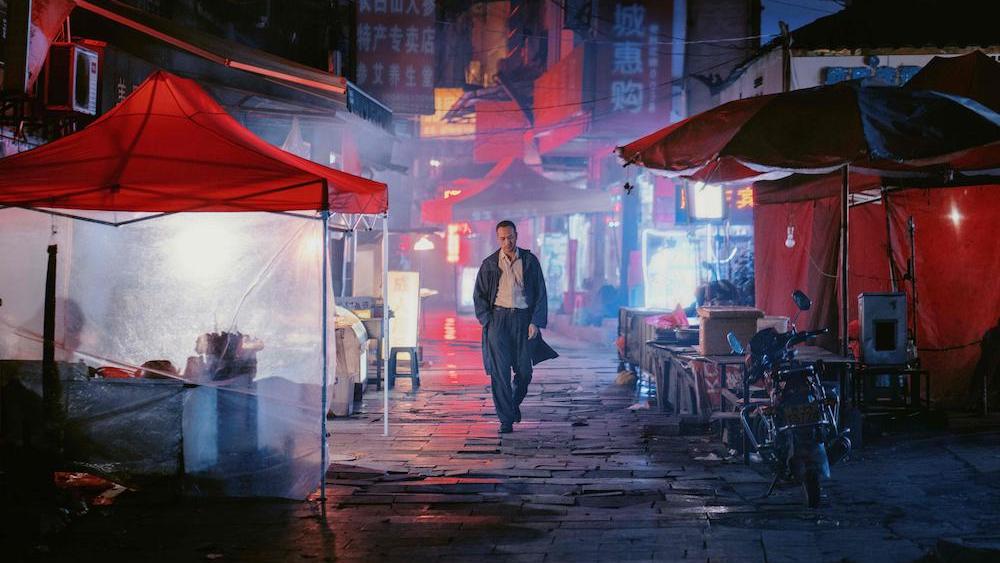5. Shadow

Visionary filmmaker Zhang Yimou is back, and as always a sensory spectacle is guaranteed. Shadow is a period piece set during China’s Three Kingdoms era (AD 220-280), and pairs palace chicanery with amazing martial arts.
The plot is an elaborate and convoluted affair pinned by an impressive dual performance from Chao Deng as both the cunning military leader Commander and his “shadow” the heroic Jing, with the Commander’s wife, Madam Yu (Li Sun) caught in the middle. As a “shadow”, Jing is a formidably conditioned and trained double for the Commander, so convincing that even the king (Zheng Kai) cannot tell them apart.
Rendered almost entirely in mist and rain, this is a large-scale epic of engaging and occasionally brutal elegance. The bewitching harmony of Shadow’s many compositions, best represented by the yin and yang pattern at the film’s center –– and the film’s near total black-and-white flush –– give Shadow its best stab at seduction. As far as style over substance goes, it’s elegant eye-candy.
4. The Wild Pear Tree

Adored Turkish master Nuri Bilge Ceylan’s profound and funny meditation on the creative life, The Wild Pear Tree, is easily his most accessible film yet.
Wannabe writer Sinan (Aydin Doğu Demirkol) moves between his quaint home village and the bustling coastal tourist city of Çanakkale, in a comfortable rut. He has a “quirky meta novel” that he should be promoting, but at the same time he’s drawn to the village of his birth and a teaching position there, a job his admired father (Murat Cemcir) held and excelled at.
Sinan discovers that his father isn’t what he seems: he has a serious gambling addiction and the family now stands at the precipice of financial ruin. Combined with Sinan’s other discovery that an old beloved flame is soon to wed, he’s at a crossroads with irreversible consequences.
Abound with metaphors, The Wild Pear Tree is a lyrically beautiful experience. Rarely has the bucolic beauty of glowing forests and rolling hills revealed such seeming everyday magic.
3. Ash is Purest White

A towering figure in international filmmaking, Jia Zhangke last rocked audiences with 2013’s staggering A Touch of Sin, and his latest, the poetically titled Ash is Purest White, finally got its North American release earlier this year.
Re-teaming with his muse Zhao Tao (together they are arguably one of the greatest husband-and-wife collaborative teams in cinema history), the film begins in 2001 as our heroine gets into it with her gangster boyfriend Bin (Liao Fan), whom she ultimately goes to prison for, thus embarking on a troubling path that takes us to the present day.
Working with expert cinematographer Eric Gautier, the bold use of color and rich visual textures make for one of 2019’s most gorgeous filmic experiences.
Powerful, brimming with thought-provoking sexual politics, and powerhouse performances, Ash is Purest White is a heart-shattering stunner.
2. Birds of Passage

Ciro Guerra and Cristina Gallego’s re-working of the family crime saga spans 12 years from 1968 to 1980 as we intimately connect with a family of indigenous Wayuu people who grow more and more involved with the Colombian drug trade and the inevitable violence that follows.
Living steadfast with their own ideas of honor and traditions, the Wayuu are wary of outsiders until a young Wayuu man named Rapayet (José Acosta) is set to marry into a family dominated by the matriarchal Ursula (Carmiña Martínez) and starts large-scale marijuana dealing. What starts as easy money, managed by the increasingly ruthless Ursula, gets everyone involved into a darkening world dominated by violence.
Told in five chapters, and replete with authentic Wayuu costumes and traditions, Guerra and Gallego’s taut, textured, and endlessly fascinating drama is an impressive crime story so gorgeously rendered and so very different from anything you’ve ever seen before.
1. Long Day’s Journey Into Night

“Intoxicating,” writes New York Times film scribe Glenn Kenny of the new film from Bi Gan (Kaili Blues), suggesting that Long Day’s Journey Into Night “feels like dreaming with your eyes open.” And Kenny isn’t alone in the enthusiastic praise of this noir-tinged spectacle of staggering beauty.
The protagonist at the center of Long Day’s Journey Into Night is Luo Hongwu (Wang Jue), a man obsessed with an elusive love affair from his past with the dreamy Wan Qiwen (Tang Wei), or was it all just a movie he so vividly remembers? And so Luo sets out to find his chimerical muse, even if it means mingling with his cruel-hearted romantic rival (Chen Yongzhong) in a journey that frequently recounts the film’s coda: “The difference between film and memory is that film is always false…”
The film slowly unravels and brings the audience to the astonishing final hour of the film, and the real reason why it tops this list. Astonishingly, Long Day’s Journey Into Night morphs into a single-take travelling shot, in 3-D no less, as Luo enters a movie theater, pulling the viewer in a must-be-seen-to-be-believed sequence that boldly asserts a new dimension of cinematic space-time that’s pure hallucinatory ecstasy. This is sensuous cinema at it’s finest, and a more visually luxuriant film you may never see. Not to be missed.
Author Bio: Shane Scott-Travis is a film critic, screenwriter, comic book author/illustrator and cineaste. Currently residing in Vancouver, Canada, Shane can often be found at the cinema, the dog park, or off in a corner someplace, paraphrasing Groucho Marx. Follow Shane on Twitter @ShaneScottravis.